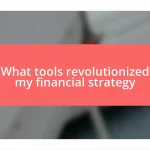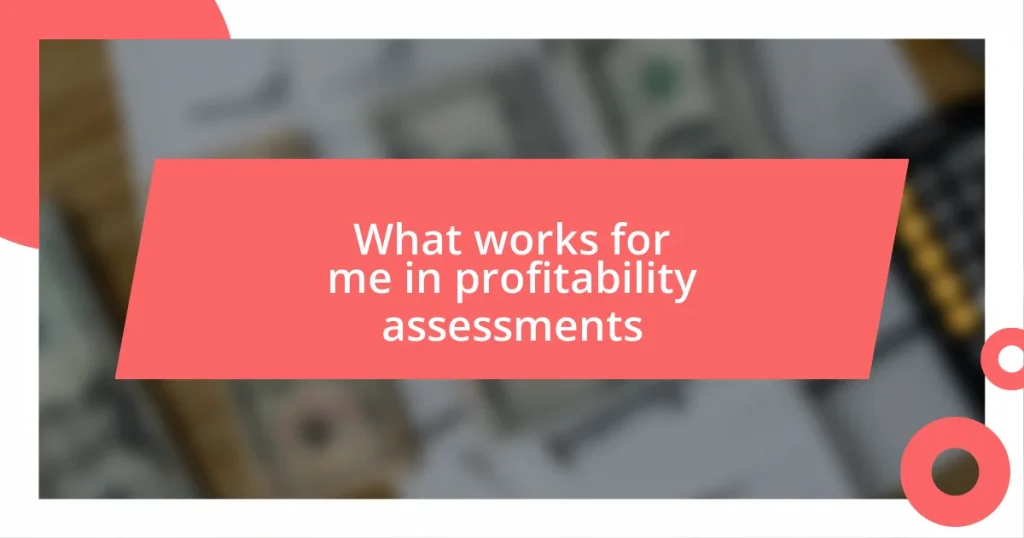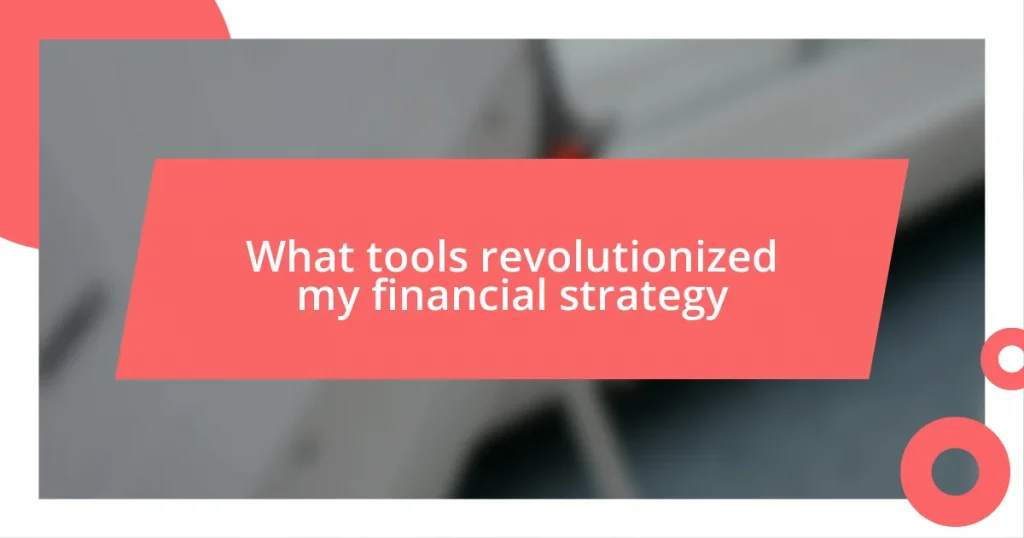Key takeaways:
- Navigating financial challenges involves understanding your financial situation through budget breakdowns, income sources, and expense assessments to regain control.
- Creating a realistic budget reflecting personal priorities and setting achievable goals can transform the budgeting process into an empowering experience.
- Building an emergency fund and maintaining motivation through small victories and community support are crucial for weathering financial hardships.
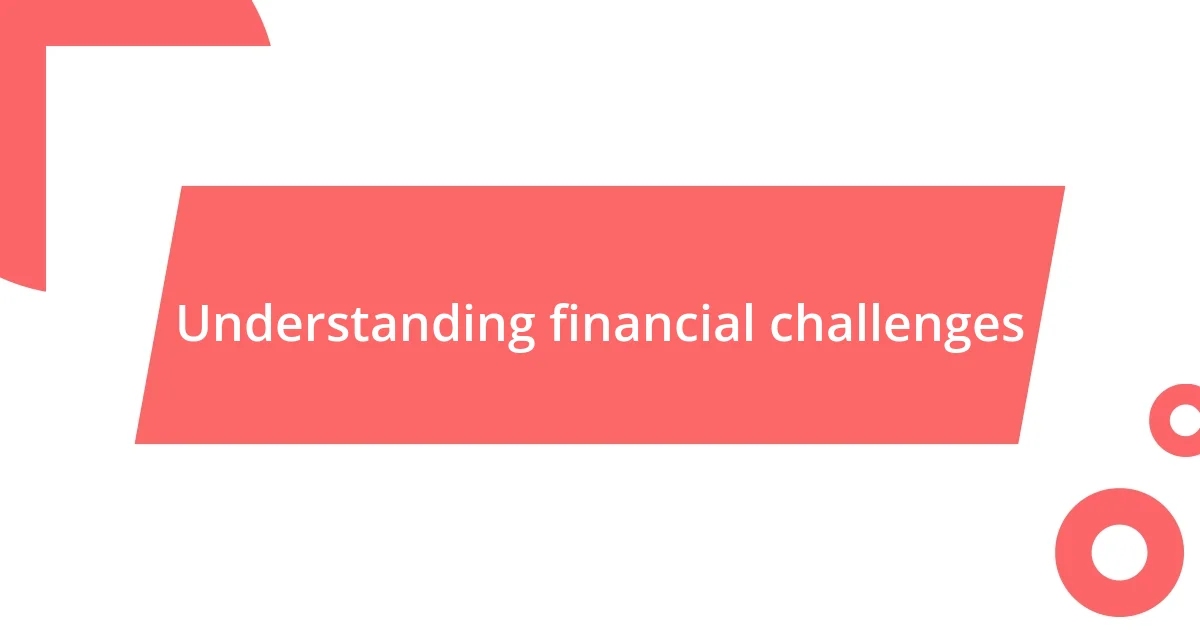
Understanding financial challenges
Financial challenges can often feel overwhelming and isolating, like a voice in your head telling you that you’re not doing enough. I remember a time when unexpected medical expenses left me scrambling to make ends meet. It’s a stark reminder that life can throw curveballs when we least expect them, isn’t it?
Navigating through these challenges requires a deep understanding of your financial situation. I found that breaking down my budget into manageable parts helped me see where I could cut costs, which was eye-opening. Have you ever sat down and really evaluated where your money goes every month? That clarity can be liberating and instrumental in regaining control.
Emotional stress often accompanies financial difficulties. During tough times, I realized that I was not just worried about bills; I was anxious about future security. Isn’t it exhausting to balance those feelings? Understanding the emotional weight of financial issues can help us approach them with a healthier mindset. When I acknowledged my fears, I could tackle them more effectively, rather than letting them consume me.
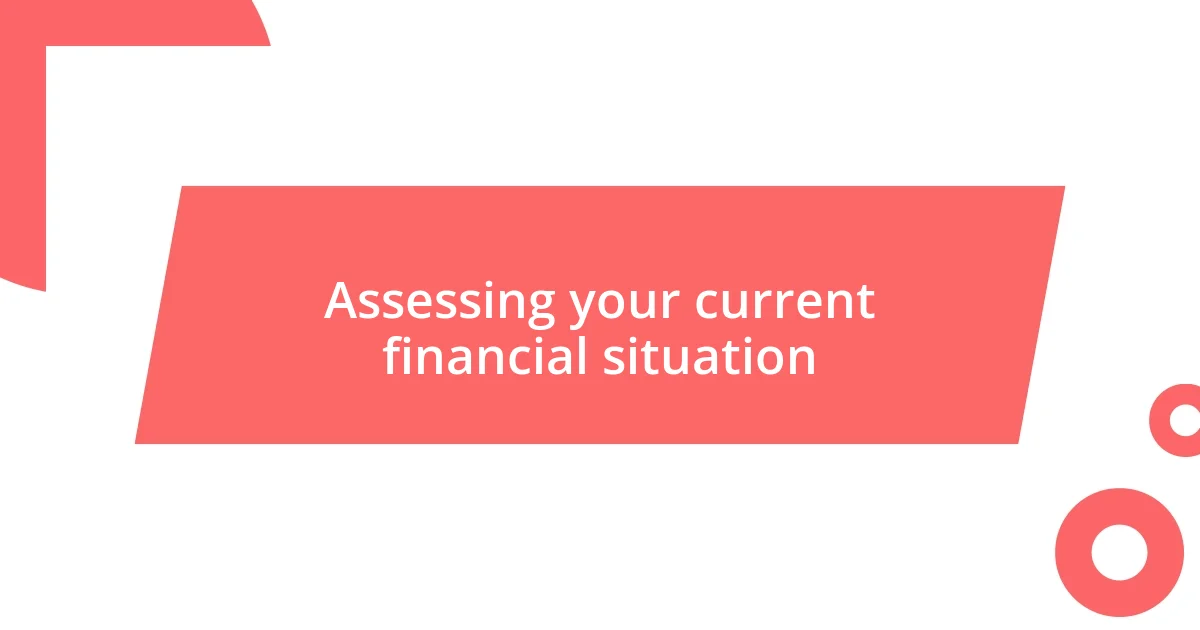
Assessing your current financial situation
To effectively assess your current financial situation, start by gathering all your financial statements in one place. I remember the first time I did this; it felt daunting but also incredibly empowering. I laid out my bank statements, bills, and income sources on the table and realized where my money was truly going. This simple act of visibility made the issues less abstract and more actionable.
Here’s what you can do to evaluate your financial standing:
– List your sources of income and their amounts.
– Determine your fixed and variable expenses.
– Subtract the total expenses from your income to figure out your net cash flow.
– Review any debts and their interest rates.
– Note any savings and investments you currently have.
Getting a grip on these details will help you understand where you can adjust priorities or make cuts. I’ve found that once you have clarity about your financial picture, it becomes easier to make sound decisions. The sense of relief that washed over me as I took stock of my situation was absolutely transformative.
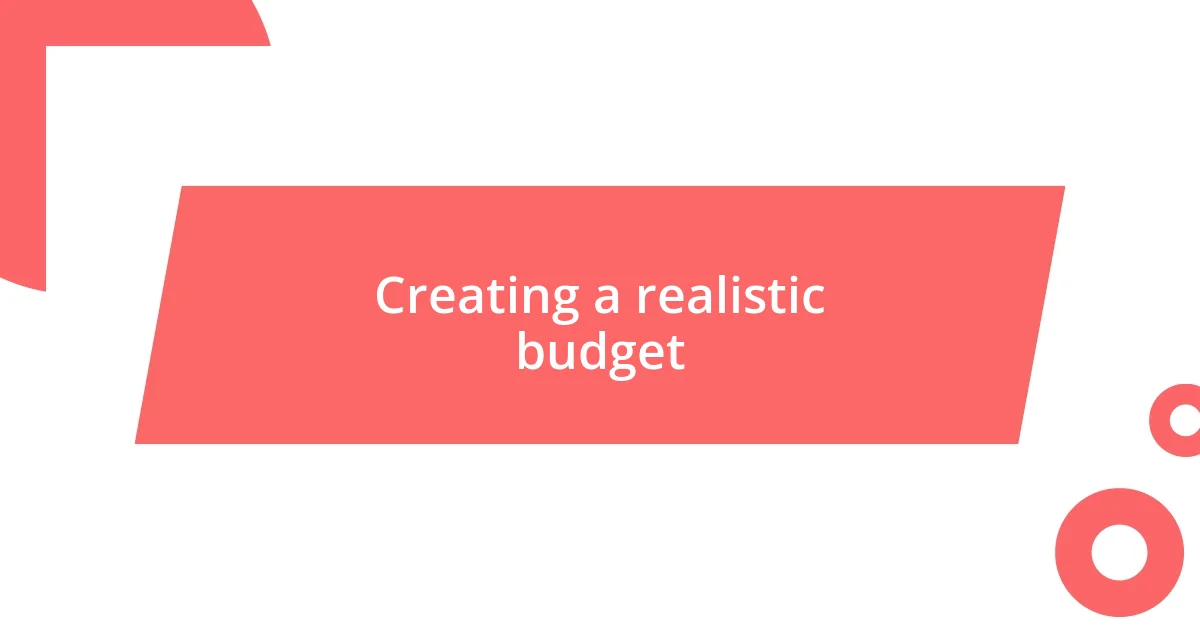
Creating a realistic budget
Creating a realistic budget is essential in taking control of your finances. I remember the first time I decided to create one; I felt a mix of excitement and apprehension. I realized I needed to account for every dollar, which forced me to confront my spending habits head-on. This experience taught me that a budget shouldn’t just be a list of numbers; it should reflect my personal priorities and goals.
When developing a budget, it’s valuable to categorize your expenses into fixed, variable, and discretionary costs. For instance, fixed expenses are those monthly bills that remain the same, like rent or mortgage. On the other hand, variable expenses can fluctuate, such as groceries or gas. I learned that identifying these categories helped me pinpoint areas where I could cut back. Have you ever found surprises hiding in your discretionary spending? I certainly did when I discovered the amount I spent on dining out—it was shocking!
To keep your budget realistic, it’s important to set achievable goals. I remember making the mistake of underestimating my lifestyle costs previously; I ended up feeling discouraged and frustrated. Instead, I began to celebrate small wins, like saving a few dollars each week. This change in mindset transformed budgeting from a chore to an empowering challenge. How about you? Have you ever found joy in reaching those minor milestones?
| Expense Type | Description |
|---|---|
| Fixed Expenses | Consistent monthly bills (e.g., rent, utilities) |
| Variable Expenses | Costs that can fluctuate (e.g., groceries, entertainment) |
| Discretionary Spending | Non-essential expenses (e.g., dining out, hobbies) |

Exploring additional income opportunities
Exploring additional income opportunities can feel like unearthing hidden treasure. I remember the first time I dabbled in freelance work; it was slightly intimidating but incredibly rewarding. I found that utilizing my skills in writing not only earned me extra cash but also allowed me to connect with people I otherwise wouldn’t have met. Have you ever thought about how your passions could translate into income?
Another approach I’ve taken is part-time gigs that align with my interests. For instance, when I started teaching online classes, I felt a mix of excitement and nervousness. It was a challenge, but seeing the positive impact I had on my students was immensely fulfilling. Plus, it gave me a great sense of financial security. What skills or hobbies do you have that could generate additional income for you?
There’s immense value in leverage—think about leveraging your current job for side projects or commissions. When I did this with my marketing job, I discovered I could offer consulting services to small businesses. This not only increased my income but also enhanced my professional network. Have you explored how your existing connections can lead to new opportunities? It’s fascinating how growth can stem from digging deeper into what we already do well.
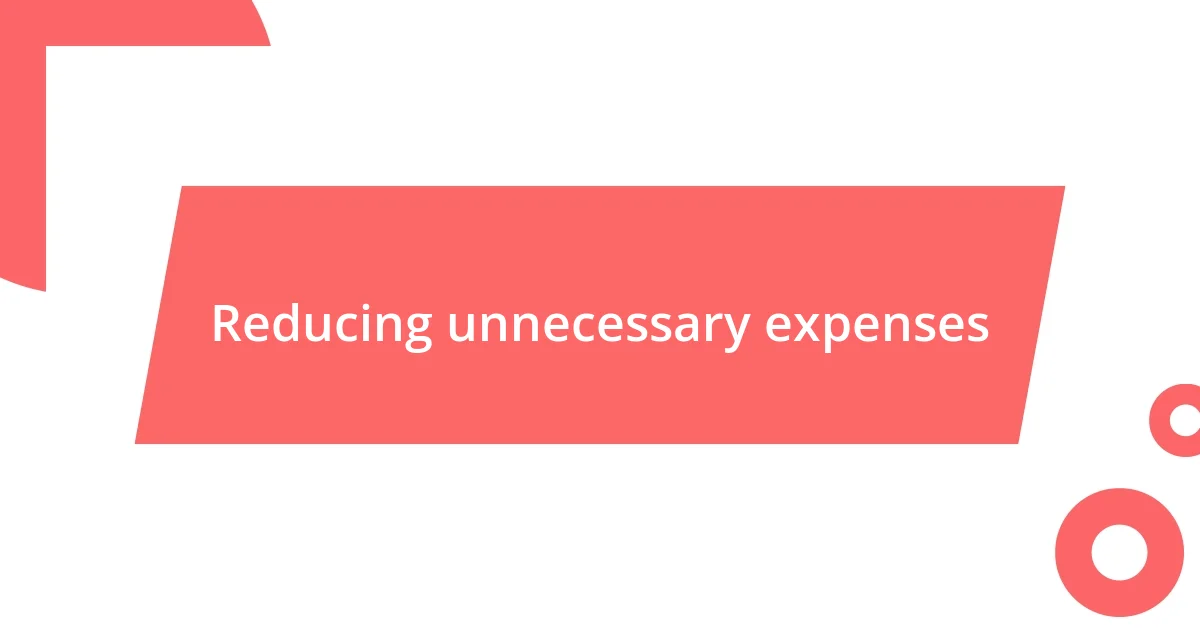
Reducing unnecessary expenses
Reducing unnecessary expenses is a game-changer in financial management. I recall a time when I was mindlessly subscribing to multiple streaming services. When I finally added them up, I realized I could fund a small vacation with that amount! This shocking realization pushed me to evaluate each subscription, leading me to cancel two that I hardly ever used. Have you ever taken a hard look at your monthly subscriptions? It’s often an eye-opening experience!
Another strategy I found effective was taking a hard look at my grocery bills. I started meal planning, which kept my shopping list focused and curtailed impulse purchases. It felt liberating to walk out of the store knowing I only bought what I actually needed. This simple adjustment saved me a significant amount each month. Have you ever considered how much better planning could work for you?
Lastly, I learned that cutting back on luxuries doesn’t mean sacrificing joy. For instance, I used to think I needed to treat myself to expensive coffees to feel special. Shifting to making my favorite brew at home not only saved money but also became a delightful ritual I genuinely enjoy. It’s important to ask yourself—what small pleasures can you adjust without losing happiness? Sometimes, finding joy in simplicity can be the best solution!

Building an emergency fund
Building an emergency fund is one of those essential financial safety nets that I cannot stress enough. I recall my first attempt at saving for an emergency – I was motivated yet overwhelmed. Starting small made all the difference; even setting aside just $10 a week felt like a significant move. Have you ever thought about how every little bit adds up over time?
Establishing a specific goal helped me maintain focus. I aimed to save three months’ worth of living expenses, and tracking my progress became a rewarding experience. It was like watching the barometer rise—seeing those numbers grow provided a comforting sense of security. Do you have a target in mind that could inspire your saving journey?
Another tactic I’ve adopted is making saving a priority, almost like paying a monthly bill. Whenever I received a paycheck, I would automatically transfer a portion to my emergency fund. This approach became second nature over time, allowing my savings to accumulate without feeling like a burden. Isn’t it interesting how automating a task can pave the way for financial freedom? It’s a habit worth cultivating.

Maintaining motivation during tough times
Staying motivated during financial hardships can feel like climbing a mountain. I remember a particularly challenging period when unexpected medical bills hit me hard, and it felt like my efforts to save were all in vain. To combat the despair, I made it a point to celebrate even the smallest victories—like sticking to my budget for a week. Have you tried acknowledging your progress, no matter how minor?
Creating a vision board became a motivational tool for me. I filled it with images and phrases representing my financial goals, from traveling to paying off debt. Every time I glanced at it, I felt a surge of determination to push through the tough times. It’s amazing how a simple visual can reignite your passion. What would your vision board look like?
During this time, I also learned the power of community support. I found a group of friends who were facing similar challenges, and we began sharing our experiences and strategies. This camaraderie lifted my spirits, reminding me I wasn’t alone in this journey. Have you considered reaching out for support? Sometimes, knowing others share your struggle provides the motivation you need to keep going.


